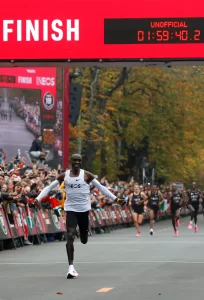

Mental training is critical in order to develop an extraordinary level of focus and concentration. This is evident in our ability to maintain a steady level of performance and a positive mindset, even in the most challenging phases of training or competition. Mental discipline allows us to stay centered on the present moment, avoiding distractions and keeping our mind on the task at hand.
Success, then, is not just a testament to his physical prowess but also a clear example of the power of mental training in sports.


Elite athletes often uses visualization techniques, where he mentally rehearses his races, picturing himself overcoming obstacles and achieving their goals. This mental preparation helps build confidence and prepare mentally to navigate the many challenges on the course.
Mental fortitude is key in dealing with setbacks and challenges. Our ability to persevere, maintain motivation, and recover from disappointments is a result of a strong mental framework developed through consistent mental training.


The mental aspect of training helps an athlete manage the pressures and anxieties that come with high-level competition. It is critical to keep the calm and composed, which is a direct outcome of effective mental training.
Successful athletes often emphasize the power of a positive mindset. Our self-talk during races is geared towards maintaining an optimistic and determined attitude, which is critical for enduring the physical and mental demands of competitive sports.
